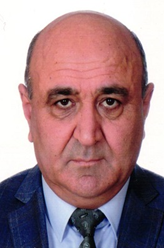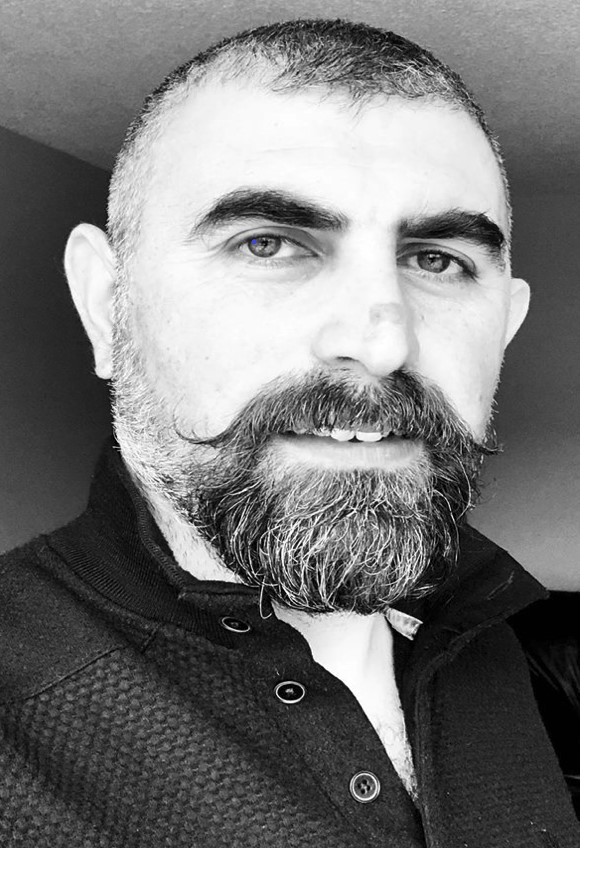4. International Conference on Theoretical and Applied Computer Science and Engineering 2019
OCTOBER 11-12, 2019
OCTOBER 11-12, 2019

Iman Askerbeyli is a Professor in the Department of Computer Engineering of the Ankara University, where he has been a faculty member since 2007. From 2012 to 2018 he served as head of the Department.He received B.S. and M.S. degrees from the Electronic Department of Physical Faculty at the Moscow State University in 1985. He completed his Ph.D. and Dr. Sc. degree at the Department of Solid State in Azerbaijan National Academy of Sciences in 1995 and 2002 years, correspondingly. He also worked between as DAAD fellow in Dresden (2001), NATO postdoc fellow Bilkent University, Electronic Depertment (2002). He was a associate member of Abdus Salam ICTP, Italy, Trieste. He has authored more than 160 papers in international conference proceedings and refereed journals and has been actively serving as a reviewer for international journals and conferences. His current research areas include application of fuzzy logic, quantum computing, modelling and simulation.
Some aspects of using superconducting qubits in quantum computing
The fundamental differences between classical and quantum laws of physics underlie the fundamental differences between classical and quantum information as well as between the methods for processing them. In classical digital computation, the processor takes as its input ones and zeros (coded, in the case of silicon integrated circuits, as two distinct voltage levels) and derives an output by performing some kind of classical Boolean logical operation on this input. By contrast, in quantum computation the processor takes as its input a quantum coherent superposition of ones and zeros. The quantum processor then performs a quantum mechanical operation on this input state in order to derive an output which is also a quantum coherent superposition. Quantum computers offer significant advantages over their classical counterparts and may furnish solutions to problems that are reputed to be insoluble with classical computers. The development of quantum computers involves overcoming both technological difficulties and the limitations arising from the decoherence of the states of a quantum computer. The aim of this presentation is the analysis of energy spectrum of Josephson based superconducting qubits. Firstly, discussion of theoretical foundation of energy spectum of different types of SC qubits are conducted. The influence of anharmonic CPR in different Josephson qubits are presented.

Resul Daş is an Associate Professor in the Department of Software Engineering at the University of Firat, where he has been a faculty member since 2011. From 2000 to 2011 he served as both instructor and network administrator at the Department of Informatics at the Firat University. He is the instructor and the coordinator of Cisco Networking Academy Program since 2002 at this university.
He graduated B.S. and M.S. degrees from the Department of Computer Science at the Fırat University in 1999 and 2002 respectively. Then he completed his Ph.D. degree at the Department of Electrical-Electronics Engineering at the same university in 2008. He also worked between September 2017 and June 2018 as a visiting professor at the Department of Computing Science at the University of Alberta, Edmonton, Canada. He has authored more than seventy papers in international conference proceedings and refereed journals and has been actively serving as a reviewer for international journals and conferences. And also he has been serving as Associate Editor for Journal of IEEE Access and Turkish Journal Electrical Engineering and Computer Science. His current research areas include computer networks and network security, cyber-security, software design and architecture, IoT/M2M applications, knowledge discovery, and multi-sensor data fusion.
The Internet world has been expanding day by day. With the rapid development of technology, the needs and demands of the communities around the world are constantly changing. The vast majority of new solutions developed in this context are created using intelligent systems. Smart homes, intelligent cities, intelligent vehicles, smart grid systems, robotics, and many other IoT systems are some examples of these. All of these systems can perform their jobs using sensors in different structures. However, the challenge is combining the data received from the sensors in different structures in the same system into the desired format in a single structure. In this process, many different factors and parameters in the systems play a major role. Data fusion has been a big trend in the field of signal/image/data analysis. Furthermore, sensor technologies have been growing constantly due to recent advancements in communication, network devices and embedded systems. The concept of the Internet of Things (IoT) has been transforming to the Internet of Everything (IoE) rapidly. The number of objects connected to IoT is expected to reach 50 billion by 2020 due to the massive influx of diverse objects emerging day by day. Meanwhile, with this revolutionary transformation, researchers, implementers, deployers, engineers and users are faced with many challenges. In this complex IoE fields which complicate, massive and crowded; it has various types of devices, protocols, communication channels, architectures, middleware, link layer technologies, services and more. Moreover, it is extremely crucial gathering meaningful data from these complex systems architecture which has multi-sensor and heterogeneity structure. Therefore, multi-sensor data fusion is one of the hottest topics for research in IoT and IoE systems recently.